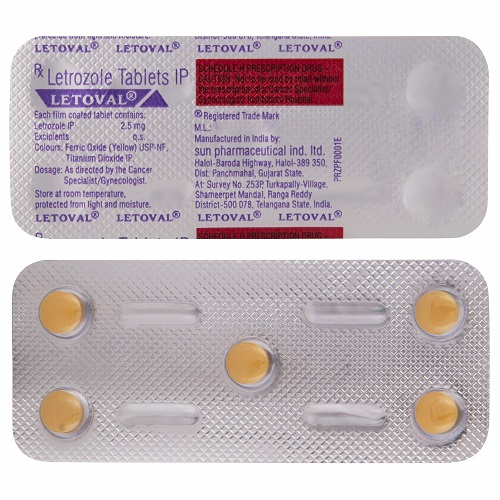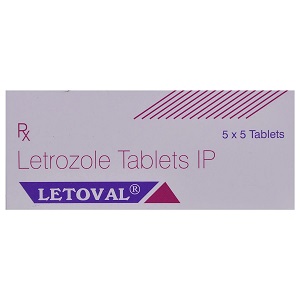Understanding the Connection: Breast Cancer and Letrozole 2.5mg Tablets
Breast Cancer and Its Medicine Letrozole 2.5mg Tablets Explained

Breast cancer is a form of cancer that emerges in the cells within the breast tissue. It predominantly impacts women, although men can also experience this ailment, albeit less frequently. This disease initiates when cells in the breast start multiplying without restraint, culminating in a tumor. Typically, the presence of a lump in the breast or alterations in its appearance detected through a physical exam or mammogram can indicate its existence. Letrozole 2.5mg Tablets are a medication used in the treatment of certain types of breast cancer, working to hinder the growth of tumors by suppressing estrogen production in the body.
There are various types of breast cancer, and they can differ based on the specific cells in the breast that are affected. The most common type begins in the ducts that carry milk to the nipple (ductal carcinoma), while others start in the glands that produce milk (lobular carcinoma). Some breast cancers can be more aggressive and spread to other parts of the body, while others grow slowly and are less likely to spread.
Several risk factors contribute to the development of breast cancer, including genetics, age, family history, hormonal influences, lifestyle factors like smoking or alcohol consumption, and certain medical conditions. However, having one or more risk factors doesn’t guarantee that someone will develop breast cancer, as many diagnosed cases occur in individuals with no known risk factors.
Early detection through regular breast exams, mammograms, and screenings significantly increases the chances of successful treatment. Treatment options for breast cancer vary based on the type and stage of cancer but commonly include surgery, chemotherapy, radiation therapy, hormone therapy, targeted therapy, or a combination of these approaches. The goal is to remove the cancerous cells, prevent recurrence, and preserve as much of the breast’s appearance and function as possible.
Awareness campaigns and education about breast cancer symptoms, risk factors, and preventive measures play a crucial role in promoting early detection and improving outcomes. Research and ongoing advancements in medical science continue to refine treatment methods and offer hope for better outcomes and quality of life for individuals diagnosed with breast cancer.
Breast Cancer Medicine:
Letrozole 2.5mg Tablets:

Letrozole 2.5mg Tablets are a multifaceted medication that effectively addresses breast cancer in post-menopausal women, either as a standalone treatment or in conjunction with other therapies like surgery or radiation. Its scope extends to curbing the spread of advanced breast cancer to other body parts. Additionally, Letrozole 2.5mg Tablets aids in treating infertility issues, offering flexibility in administration with or without food, although maintaining a consistent schedule is recommended for optimal benefits. The dosage and frequency vary based on individual needs and prescribed duration.
While its efficacy in battling breast cancer symptoms like lumps, nipple discharge, or breast changes is notable,
Letrozole 2.5mg Tablets operates by modifying hormone production critical for the growth and spread of breast cancer. This medication’s common side effects include hot flashes, fatigue, increased sweating, elevated cholesterol levels, bone and joint discomfort, dizziness, edema, and flushing. Prior medical conditions like liver or kidney diseases, or osteoporosis, should be disclosed before initiating treatment.
Common Side Effects of Letrozole 2.5mg Tablets:
- Flushing (a sensation of warmth in the face, ears, neck, and trunk)
- Edema (swelling)
- Joint pain
- Dizziness
- Bone pain
- Hot flashes
- Increased sweating
- Hypercholesterolemia (elevated cholesterol levels)
- Fatigue
Letrozole 2.5mg Tablets interaction with other medications and its effectiveness alteration underscore the importance of informing your doctor about ongoing prescriptions. Caution is advised for pregnant or breastfeeding individuals due to potential risks. Monitoring via blood tests for vitamin D levels and bone density might be necessary throughout treatment.




 :
:  +91 – 9999064250 | 9811604444 | 9811604424
+91 – 9999064250 | 9811604444 | 9811604424

